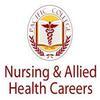When people think of nurses, most think of individuals they see at the hospital or the doctor’s office. They think of people who record their vitals and check up on them, of individuals they only see once a year or once in their lifetime. They don’t think of rehabilitation nurses. Yet for the people who have and need them, rehab nurses are crucial to their recovery and their lives.
Rehabilitation nurses are different from other nurses; they work with individuals and their families as they navigate short-term, progressive, and long-term impediments or disabilities to help them reach or return to the highest level of functioning possible. They see individuals at their worst and their best and are present for their successes and failures. They help families adjust and deal with the struggles and difficulties of a loved one’s situation. And they are crucial to their patients; there from start to finish, when they work through exercises or need a pep talk, rehab nurses are both physically and emotionally necessary.
If you want to be a rehab nurse, you must attend a certified program and obtain a nursing degree either as a registered nurse (RN) or a licensed practical nurse (LPN). It is recommended that you also attain certification, after which you can be known as certified rehabilitation nurses (CRRN).
As a rehab nurse, you could work at outpatient rehabilitation centers, specialty rehabilitation hospitals, long term care facilities, acute care facilities, or long term acute care (LTAC) hospitals. Depending on where you work, your responsibilities could include anything from checking vital signs, helping with range of motion exercises, and using skills related to wound care and respiratory therapy.
People who serve as rehab nurses play many different roles and it’s a great career for those who thrive by helping others successfully regain independence. If you invest in your patients and their success, you too will reap the benefits when they’re finally ready to leave the facility, no matter how long you’ve spent together. Get the nursing degree and/or certificate you need and transform your life–and the lives of many, many others.

